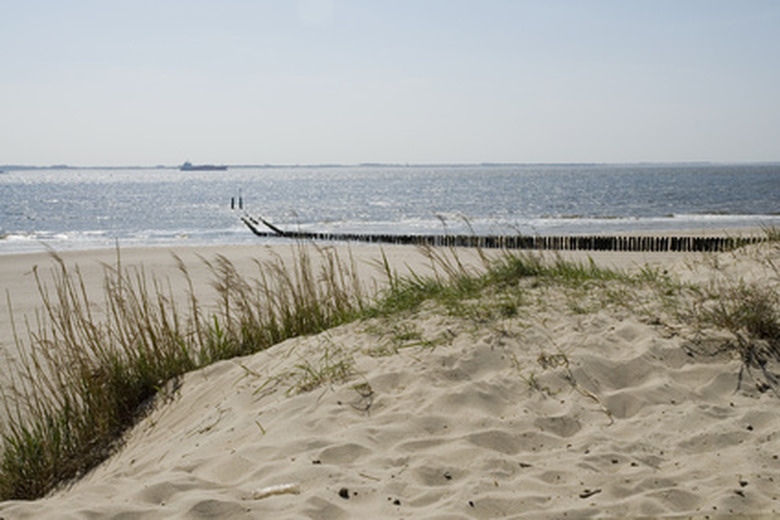Types Of Grass In Maine
The state of Maine lies within the United States Department of Agriculture (USDA) Hardiness Zones 3 to 5. If you live in Maine, select a grass according to the plant's cold tolerance, blade color, mature size, general culture and intended use. Several types of grass grow well in Maine.
American Beach Grass
American beach grass (Ammophila breviligulata) naturally occurs along Maine's coastline. This perennial grass ranges from 12 to 36 inches high with roots that reach over 20 feet long. The American beach grass stands out from other beach grasses because it bears clusters of evergreen leaves around its flower spikes. These spikes feature numerous small, yellow blossoms from July through September. The American beach grass works well as a dune stabilizer in areas that receive plenty of sun.
- The state of Maine lies within the United States Department of Agriculture (USDA) Hardiness Zones 3 to 5.
- American beach grass (Ammophila breviligulata) naturally occurs along Maine's coastline.
Foxtail Barley
Foxtail barley (Hordeum jubatum) naturally occurs along Maine's waste areas and roadsides. This perennial grass features glossy, green blades that reach up to 3 feet in height. Long, stiff clusters of very small, light green or purple flowers bloom from May through July. This grass should not be planted in areas with livestock because the bristly seeds can cut their mouths. Maine gardeners often plant foxtail barley in meadows with dry soil.
Sweet Grass
The sweet grass (Hierochloe odorata), also known as the vanilla grass, ranges from 12 to 20 inches tall. The thin, stiff blades have a grayish-green color. This sweet-scented, perennial grass features small, yellow blossoms in June. The flowers give way to tiny seed heads bearing wide, bronze grains that feed local birds. This type of grass requires moist to wet soils that receive full sun. Maine gardeners often use the sweet grass in moist meadows or along shorelines.
- Foxtail barley (Hordeum jubatum) naturally occurs along Maine's waste areas and roadsides.
- This grass should not be planted in areas with livestock because the bristly seeds can cut their mouths.
Yellow Indian Grass
Yellow Indian grass (Sorghastrum nutans), a native Maine grass, reaches between 3 and 8 feet in height. This warm season perennial bears wide, bluish-green to bluish-gray blades that turn purple or dark orange shades in the autumn. Blossoms appear from August through October, featuring plumes of tiny, golden yellow to purple flowers with red to red-brown awns. These flowers contrast nicely with the darker grass blades. The yellow Indian grass works well mass planted in rich, moist woods, prairies or wildflower meadows.
Freshwater Cordgrass
Freshwater cordgrass (Spartina pectinata), also called prairie cordgrass, ranges from 5 to 6 feet tall. This perennial plant bears stiff, green blades that have a rough texture. Clusters of tiny, yellow blossoms appear in June, giving way to little spikes of tan seed heads. The flowers and seeds tower high above the grass blades. This tallgrass works well planted along Maine's freshwater marshes and in moist prairies. Freshwater cordgrass sometimes spreads too quickly and becomes invasive.
- Yellow Indian grass (Sorghastrum nutans), a native Maine grass, reaches between 3 and 8 feet in height.
- The yellow Indian grass works well mass planted in rich, moist woods, prairies or wildflower meadows.
